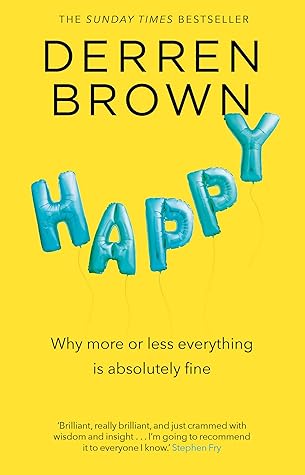More on this book
Community
Kindle Notes & Highlights
There is something powerful in the idea that we recognise reason as something unique in ourselves, something that separates us from the animals, and that our aim should be to bring that to its most virtuous completion. According to Aristotle, we can enjoy trivial pleasures, but these should only be in preparation for activities in accordance with virtue.
Yet the remembering self forms an excruciating narrative in which we have let ourselves down or been unfairly treated. When others sleep, it of course likes to vividly replay those stories, enthusiastically alerting us to each and every agonising detail.
If we hope for something deeper in life than distraction, we might note that our remembering, story-forming self needs a narrative of happiness in the same way our experiencing self requires its pleasures. And here we might find that we sleep more peacefully if we see our lives as part of Aristotle’s telos, as a work in progress, one in which we could view daily irritations as a kind of test; one which teaches us virtue and where we can, step by step, and by considering the variables of each situation as it happens, move towards being a better (happier, kinder, more fulfilled) version of
...more
It is a testament to the power of his thinking that we do find some of his ideas rather obvious today. It means they’ve lasted this long and become part of our modern way of understanding. He was the first person of note in history to consider these questions and bring his answers together to form a system with anything like the level of detailed comprehension it has. Yet, somehow, it seems to lack real transformative power, and I think the reasons for this are twofold, though related.
Firstly, Aristotle’s system is unashamedly a celebration of reason.
A second grievance regarding Aristotle might be found in his elitist presumptions about who can be taught the route to the good life. A prerequisite was a suitably receptive character, which is why his Lyceum was open only to men, and men who had already received an education.
This amounts to an elitist view of happiness; it is certainly not something that is open to everyone. How different this is from our modern sense of universal entitlement. Children, women, the uneducated and slaves were seen as a lost cause. Can that be right? Or should an effective route to happiness be, by its nature, open to all?


